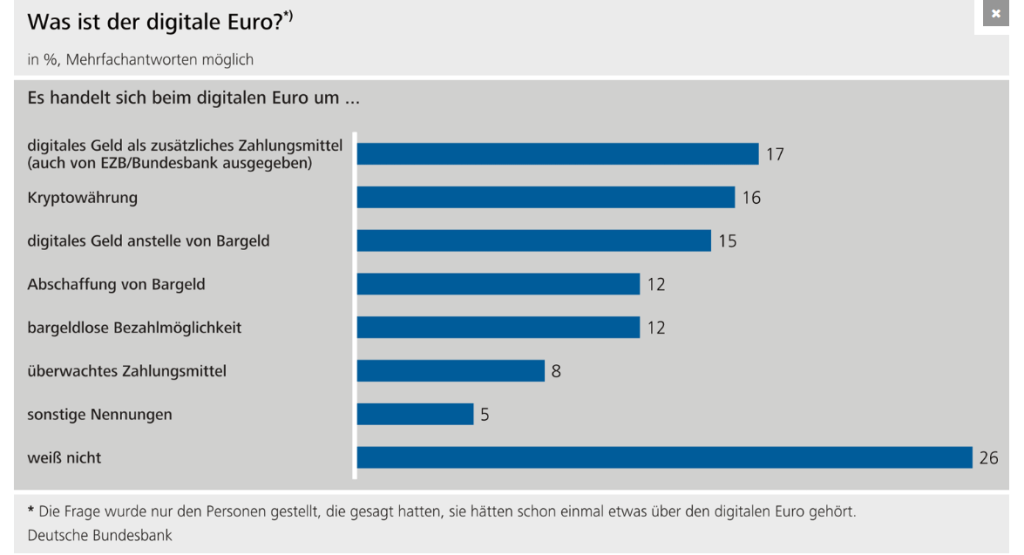A recent survey conducted by the German central bank Deutsche Bundesbank shows the surprising openness of Germans to digital euro, the digital currency proposed by the European Central Bank (ECB). However, the study also reveals a significant knowledge gap that needs to be filled before the system’s full potential can be realized.
While an astonishing three-fifths (60%) of Germans surveyed admitted they had never heard of a digital euro, half (50%) expressed a willingness to potentially employ it if it was offered as an additional payment option. This openness, despite lack of familiarity, suggests society’s appetite for innovation in the payments landscape.
Misconceptions Cloud Curiosity
However, Test it also paints a picture of the confusion surrounding the digital euro. Nearly a third of respondents (30%) wrongly believe it will completely replace cash, highlighting the need for clear and concise public education efforts. The ECB has repeatedly emphasized that the digital euro will complement cash, offering a protected and convenient alternative to digital transactions.

Privacy emerged as the most crucial factor for Germans considering a digital euro. More than three-quarters (76%) rated robust privacy protections as “very important” or “important.” These concerns likely stem from the ever-present issue of data privacy in the digital age. The ECB assures users that their data will be much safer with the digital euro than with existing commercial payment solutions.
Building trust in the digital future
The survey results highlight the importance of comprehensive public information campaigns, said Burkhard Balz, member of the Bundesbank’s management board responsible for the digital euro project. Balz added that under current plans, people will be able to make their first payments in the digital euro in 2028 at the earliest.
As of today, the market cap of cryptocurrencies stood at $2.5 trillion. Chart: TradingView.com
The ECB intends to fill this knowledge gap through a multi-pronged approach. Public information campaigns will explain the concept of a digital euro, highlighting its role as a complement to cash rather than a replacement. In addition, the ECB is committed to creating a system where user privacy is a priority. They claim that transaction details will be known only to the payer and the recipient, without unnecessary data collection by authorities.
Related Reading: Elon Musk Ends Crypto-Trump Talks: “I Never Talked to Him About Bitcoin”
Digital euro: the road to 2028
Currently, the digital euro is in its initial phase, focusing on finalizing regulations and exploring potential distribution channels. This preparatory phase is expected to end in October 2025. According to Bundesbank estimates, Germans and Europeans as a whole should not expect to employ the digital euro in everyday transactions until at least 2028.
Featured image from WSBI ESBG, chart from TradingView
